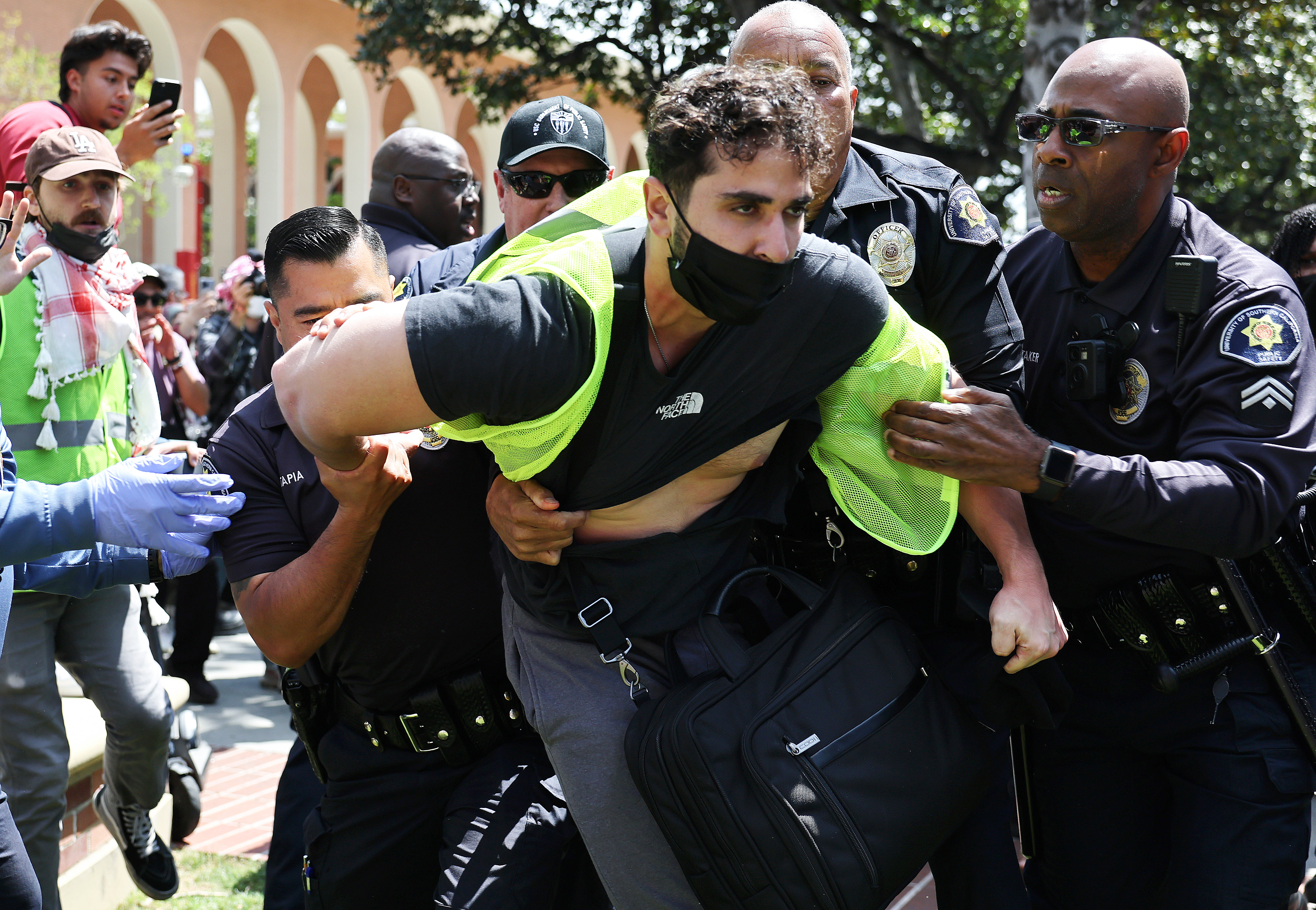The Los Angeles Police Department's inspector general's office found problems in about one-third of all cases it examined for a violation commonly referred to as "resisting arrest," a charge that has been historically vulnerable to abuse by officers, according to a report released Tuesday.
The report submitted by Inspector General Mark P. Smith looked at 123 incidents which occurred between June 2016 and March 2017, in which at least one individual was arrested for allegedly violating California Penal Code section 148(a)(1), which does not just cover resisting arrest but applies to any actions by a person to willfully resist, delay or obstruct an officer in the performance of his or her official duties.
Problems the IG found included incidents with insufficient documentation or articulation for the basis for the stop or other officer decisions, as well as cases where there did not appear to be a sufficient basis for one or more decisions.
The report recommended a number of changes to procedures, and LAPD Chief Michel Moore said he welcomed the report and its findings.
Speaking at a meeting of the Board of Police Commissioners before it approved the report, Moore said it "offers an opportunity for all of us to ensure that our policies, protocols, procedures and training are what we expect" and that it "strikes the right tenor and tone."
The 123 incidents examined by the IG only constituted about 35 percent of all arrests for violations of 148 PC during the time period, but were chosen for a closer look for several reasons, including the availability of video.
The IG found that officers were sometimes responsible for escalating an interaction by using disrespectful or profane language, making seemingly retaliatory threats, or a lack of transparency about why decisions were being made or actions taken.
News
Top news of the day
"The use of profanity in these instances often appeared unnecessary and rude, and, rather than resolving an incident, such language often appeared to escalate a minor incident by provoking frustration and protest on the part of the person being detained,'' the report says.
Other instances were found where a person was stopped for jaywalking or blocking a street, although no violation had actually occurred. The report also found that in 26 percent of the cases examined, the alleged resistance offered by the arrestee was relatively minor or, in some instances, appeared to be related to a person's mental health disability.
The report noted that "resisting arrest" has historically been viewed as vulnerable to abuse and was the subject of reform when the department operated under a federal consent decree from 2001 to 2013 as a result of a corruption scandal in the Rampart Division.
The charge has been referred to by some as "contempt of cop" due to the perception that it can be used in a retaliatory fashion against individuals who are disrespectful or show contempt toward an officer, or may be used by officers as a "cover charge" when they use force -- and, potentially, unnecessary force -- and subsequently seek to justify the need to use that force, according to the report.
When officers arrest an individual and the primary charge is 148 PC, their watch commander is required to conduct a pre-booking evaluation of the arrest. The report recommends that the department provide a more structured review of the arrests by watch commanders, and that the department conduct additional analysis of officers' decision-making during stops and review training in light of the issues raised in the report.



